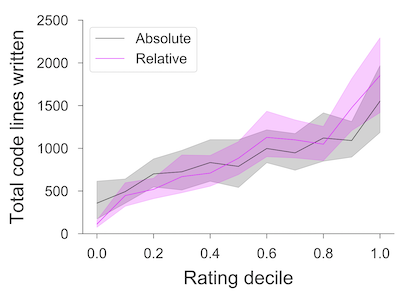Ranking in contests and competitions is often used to motivate individual contributions but it can have negative impact on the group. This paper studies the effect of social comparison on the dispersion and predictability of individual performance. The work was done in collaboration with Sebastian Müller (LSE’18) and researchers from Aarhus University and Harvard University. We hypothesize that the effects of social comparison on effort will differ for top-performers and bottom-performers in a way that the inequality between the two increases. We use a quasi-experimental design to test our predictions with data from Topcoder, an online crowdsourcing platform that publishes computer programming contests. We find that in contests where the submitted code is evaluated against others’ submissions, rather than using an absolute scale, top-performers increase their effort while bottom-performers decrease it. As a result, relative scoring leads to a higher dispersion and somewhat higher predictability of performance, strengthening the status quo and precluding under- performers from engaging and learning. Our findings expose the drawbacks of using gamified competitions, rankings, and relative evaluations in learning environments and organizations.
The paper was published in Proceedings of the ACM on Human-Computer Interaction and is freely available here.
